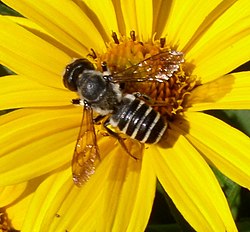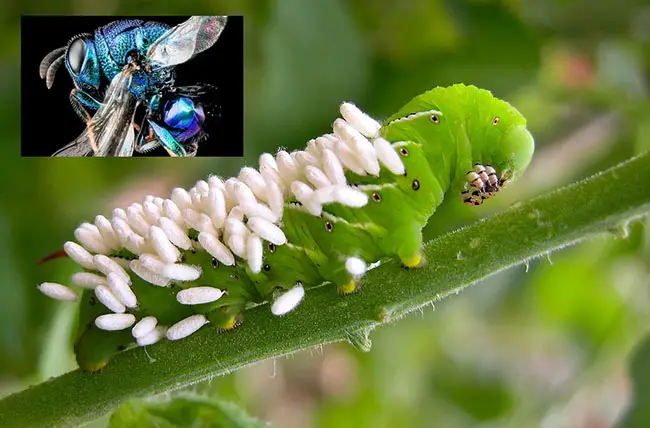What is a similarity between abiotic and biotic factors?
They are both on Earth! They are both in every ecosystem.
Name two reasons wetlands are important.
Some of the most biodiverse areas enriched by endemic species (unique to a particular area)
Havens for migratory birds such as flamingos
Source of natural resources (rice, fish, etc.)
Act as natural reservoirs during periods of rainfall or snowfall, providing a flood-control function
Recharge aquifers by storing water and releasing it into groundwater
Which is better for analyzing the relationships in an ecosystem, food webs or food chains? Why?
Food webs, show multiple relationships at once
What kind of relationship is this?

What is "Mutualism"?
Definition of "Biodiversity".
What is "the variety of life in a particular ecosystem"?
What is a biotic factor's relationship to a abiotic factor?
A biotic thing uses abiotic factors to enhance its life.
What is a keystone species?
A keystone species is an organism that helps define an entire ecosystem. Without its keystone species, the ecosystem would be dramatically different or cease to exist altogether.
Many food chains connect to form this more complex representation of energy transfer among organisms.
What is "A Food Web"?
What kind of relationship is this?
What is "Parasitism"?
Definition of "Trophic Levels".
The trophic level of an organism is the number of steps it is from the start of the chain. A food web starts at trophic level 1 with primary producers such as plants, can move to herbivores at level 2, carnivores at level 3 or higher, and typically finish with apex predators at level 4 or 5.
What do all biotic things need?
Oxygen, water, food, living space, and stable internal conditions. FOOD-WATER-SHELTER
Which group of organisms lives on the ocean floor?
a. plankton
b. benthos
c. nekton
b. benthos
This organism lies at the bottom of a food chain and can be known as an "Autotroph".
What is "A producer".
What kind of relationship is this?

What is "Commensalism"?
Definition of "Niche".
What is "The role of a species within its environment"?
Lizards and cacti are biotic factors in a desert ecosystem that would rely on which abiotic factors?
a. insects and sun
b. water and insects
c. snakes and temperature
d. water and soil
d. water and soil
The water cycle involves plants releasing water vapor from their leaves. What is this called?
What is "Transpiration"?
Besides Producers these are the other types of organisms in a food chain. They are known as "Heterotrophs".
What are "Consumers"?
What kind of relationship is this?

What is "Parasitism"?
Definition of "Ecology".
What is "A branch of biology that deals with the relations of organisms to one another and to their physical surroundings"?
Name 5 abiotic factors.
...
Name 4 types of terrestrial ecosystems.
taigas, tundra, deciduous forests, grasslands, desert, and tropical rainforest ecosystems
The percent amount of energy transferred to each organism in a food chain.
What is "10%"?
What kind of relationship is this?

What is "Commensalism"?
Definition of "Gregarious"
It is a large group of individuals of the same species, not necessarily related, which live together, at least for some time. The main gregarious associations are: - Herds, typical of mammals (e.g. buffalo, antelopes, zebras, etc.)